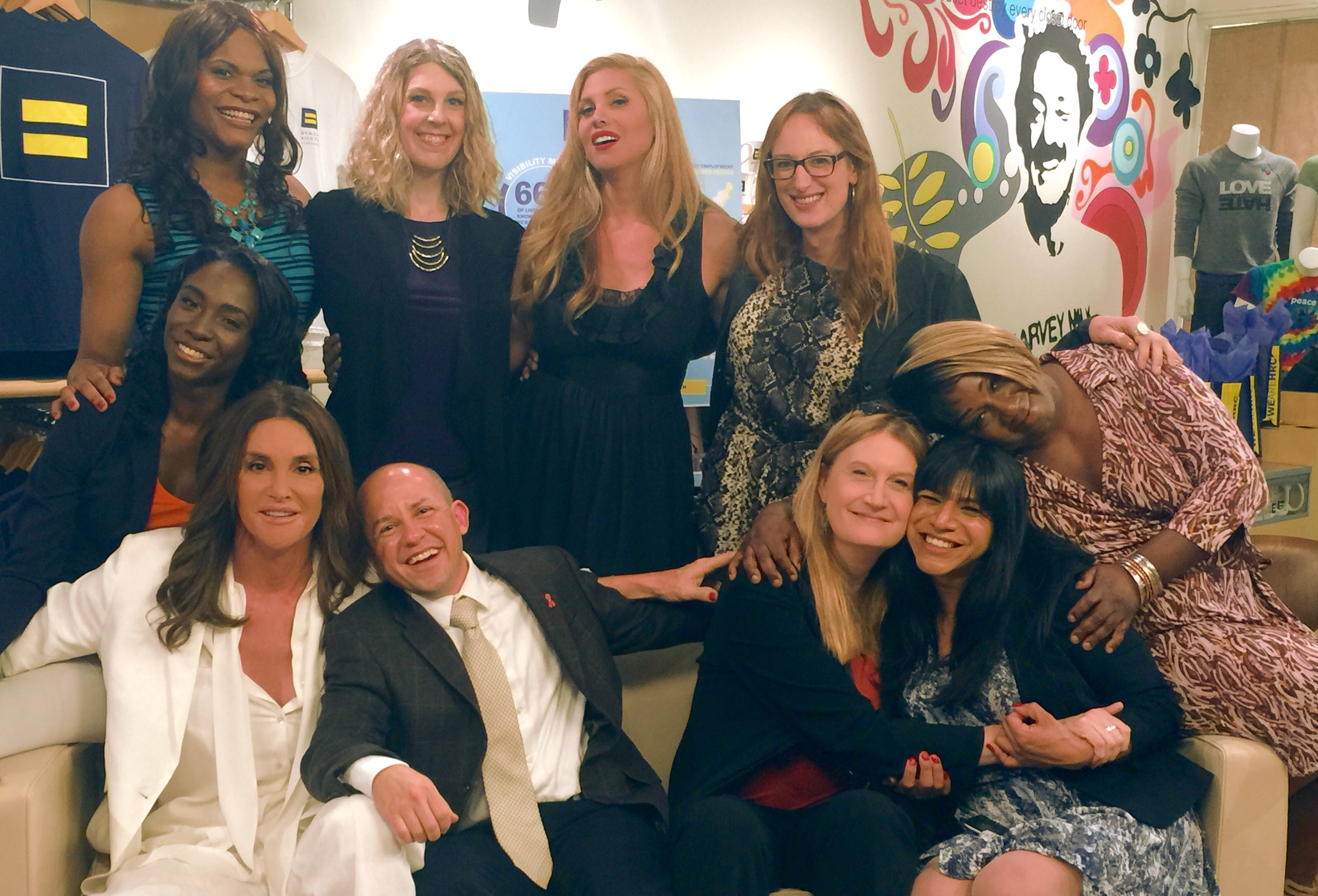Married in the Morning, Fired in the Afternoon: The State of LGBT Anti-Discrimination Laws in the U.S.

As we told you earlier this month, online travel site Orbitz is currently hosting a SNAP for Equality selfie contest that could win you a first class trip in the U.S. or Europe. Part of that campaign is dedicated to raising awareness about the current state of anti-discrimination laws in the U.S.
With the Supreme Court’s landmark ruling in Obergefell v. Hodges, it might be easy to think that our biggest civil rights hurdles are behind us. However, as Vice President Joe Biden remarked at a rally celebrating marriage equality, LGBT people can get married in the morning and fired in the afternoon because of their sexual orientation or gender identity in 28 states.
What’s perhaps most shocking about LGBT anti-discrimination laws in the U.S. is the fact that a wide majority of Americans have no idea that the federal government does not protect LGBT people from being discriminated against–in fact, they think the opposite.
According to a Public Religion Research Institute poll from February 2014, 75% of respondents said that it is currently illegal under federal law to discriminate on the basis of sexual orientation or gender identity.

Of course, this is not the case. For all the efforts to pass an Employment Non-Discrimination Act (ENDA), there currently exists no federal law that protects LGBT people from discrimination. As a result, the issue has been left to the states. And the states in turn have acted incredibly unevenly in deciding whether to put non-discrimination laws on the books to protect LGBT people.
Currently, only 17 states have banned discrimination in employment, housing and public accommodation on the basis of sexual orientation and gender identity. Those states include California, Oregon, Washington, Hawaii, Nevada, Colorado, New Mexico, Minnesota, Iowa, Illinois, Vermont, Maine, Rhode Island, Connecticut, New Jersey, Delaware, Maryland, and the District of Columbia.

Massachusetts and Utah ban discrimination against LGBT people in employment and housing but not in public accommodation. As the Movement Advance Project (whose maps are displayed here) spells out, “Public accommodations laws generally cover anywhere someone is when they are not at home, work, or school, including retail stores, restaurants, parks, hotels, doctors’ offices, and banks.”

Three states, Wisconsin, New York and New Hampshire, have statewide anti-discrimination ordinances that prohibit discrimination on the basis of sexual orientation but not on the basis of gender identity.
In the remaining 28 states, it falls to cities and counties to decide whether they will protect LGBT people from discrimination. Two of those states, Arkansas and Tennessee, explicitly ban cities and counties from passing nondiscrimination ordinances.
Despite this very bad news on the state of anti-discrimination laws in the U.S., there have been positive developments as of late.
The Federal Equal Employment Opportunity Commission (EEOC) just ruled that Title VII of the Civil Rights Act of 1964 bars discrimination on the basis of sexual orientation. Wrote Towleroad’s Ari Ezra Waldman of the ruling,
“…[T]he Commission held that discrimination against gay persons violates Title VII’s ban on discrimination on the basis of sex. This is potentially groundbreaking: until Friday, there was no federal law protecting gay workers if they are discriminated against because they are gay, and although only the Supreme Court can issue a definitive ruling on the subject, the EEOC’s view is given substantial weight by the courts.”
 And that’s not all. Members of Congress last week introduced new legislation, the Equality Act, that would prohibit discrimination on the basis of sexual orientation or gender identity in employment, housing, credit, education, and jury service. The legislation is an update to the Civil Rights Act of 1964 that would explicitly extend its protections to LGBT individuals.
And that’s not all. Members of Congress last week introduced new legislation, the Equality Act, that would prohibit discrimination on the basis of sexual orientation or gender identity in employment, housing, credit, education, and jury service. The legislation is an update to the Civil Rights Act of 1964 that would explicitly extend its protections to LGBT individuals.
But if the EEOC has decided that the Civil Rights Act already applies to LGBT people, why would more action be needed? As Ari Ezra Waldman pointed out in his analysis of the EEOC’s decision, the EEOC ruling is “unstable” and was a 3-2 ruling along party lines. Plus, it does not address all the anti-discrimination concerns currently on the table:
“[We] need a comprehensive anti-gay discrimination law passed at the federal level because this decision (and Title VII) only applies to employment discrimination. Gays are discriminated against in the provision of housing, education, and a host of other social services.”
What are your thoughts on the federal Equality Act? Sound off in the comments.
And don’t forget to enter in the Orbitz SNAP for Equality contest. Share a selfie of you celebrating marriage equality and you could win a first class trip to the U.S. or Europe! Click HERE to find out more.
The post Married in the Morning, Fired in the Afternoon: The State of LGBT Anti-Discrimination Laws in the U.S. appeared first on Towleroad.
Towleroad









